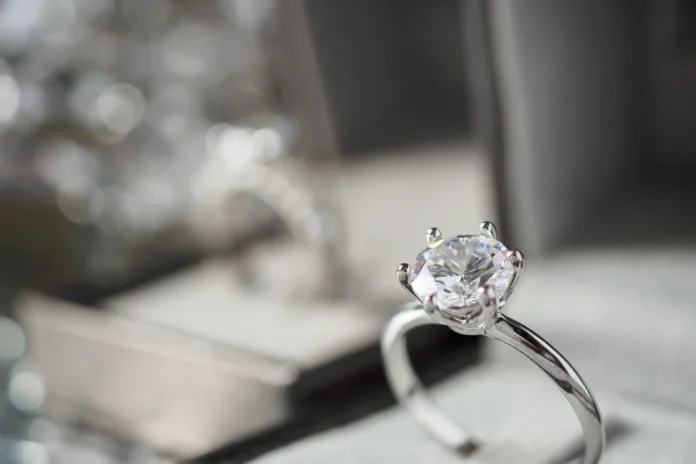Lab-grown diamonds can be a convenient and high-quality alternative to natural diamonds, offering value and clarity. As technology for creating diamonds improves, lab-grown diamonds resemble the appearance, durability, and brilliance of natural stones. Here are some ways to know if you can use a lab-grown diamond for engagement rings:
Understanding Lab-Grown Diamonds
A lab-grown diamond is crafted in a controlled environment using techniques that mimic the formation process of natural diamonds. Lab diamonds are manufactured through two key methods: chemical vapor deposition and high-pressure, high-temperature. In these processes, carbon deposits collect on a diamond seed, forming a larger stone. These are environmentally friendly processes, producing minimal carbon emissions per carat. Lab diamonds can contain the same physical, chemical, and optical attributes as mined diamonds. Like natural diamonds, the finished stones are graded according to the 4Cs: cut, color, clarity, and carat weight.
Purchasing Synthetic Diamond Rings
When buying an engagement ring with a lab-grown diamond, the stone should have a grading report from a recognized gemological laboratory. This verifies the uniformity and quality of the diamond in terms of its 4Cs. You should also determine whether the stone you want is loose or pre-set in a ring. Loose stones allow you to customize an engagement ring, including the metal and setting. Jewelers often allow you to compare diamonds simultaneously, enabling you to review the stones’ shapes, sizes, and sparkle.
Some jewelers provide after-sales services for lab-grown diamond rings. Services can include resizing, cleaning, repairs, and remounting. This helps maintain the ring’s appearance and keeps stones secure.
Wearing Lab-Grown Diamond Rings
Synthetic diamonds are suitable for engagement rings due to their appearance and quality. They possess the same rating on the Mohs scale of hardness as natural diamonds, making the stones ideal for everyday wear. They will not easily crack or chip. When set in jewelry, they are often indistinguishable from natural stones in terms of clarity and luster. Jewelers offer a variety of engagement ring styles featuring lab-grown diamonds, including solitaire, halo, three-stone, and vintage-inspired designs. They can be set in customized platinum, white gold, yellow gold, or rose gold rings.
Maintaining Synthetic Diamond Rings
Engagement rings require regular maintenance to preserve their brilliance and structural integrity. Care for rings with lab-grown diamonds and natural diamonds is often similar. Occasional cleaning with mild soap, warm water, and a soft-bristled brush helps remove the residue that causes the surface to appear dull.
A jeweler can identify loose prongs, worn mountings, or other visible wear that affects the diamond’s security. Regular inspections help identify these concerns before stones are lost. Jewelers may also offer engraving services to personalize your ring, or solder engagement rings and wedding bands together.
Choose Quality Engagement Rings
Lab-grown diamonds can be cut according to your preferences and set in stylish, unique rings. Jewelers offering custom design services help you design a ring that matches your partner’s vision and lifestyle. Lab-grown stones are a practical and durable option for those seeking a low-maintenance yet functional stone. If you need a high-quality lab-grown diamond, contact an experienced jeweler today.

